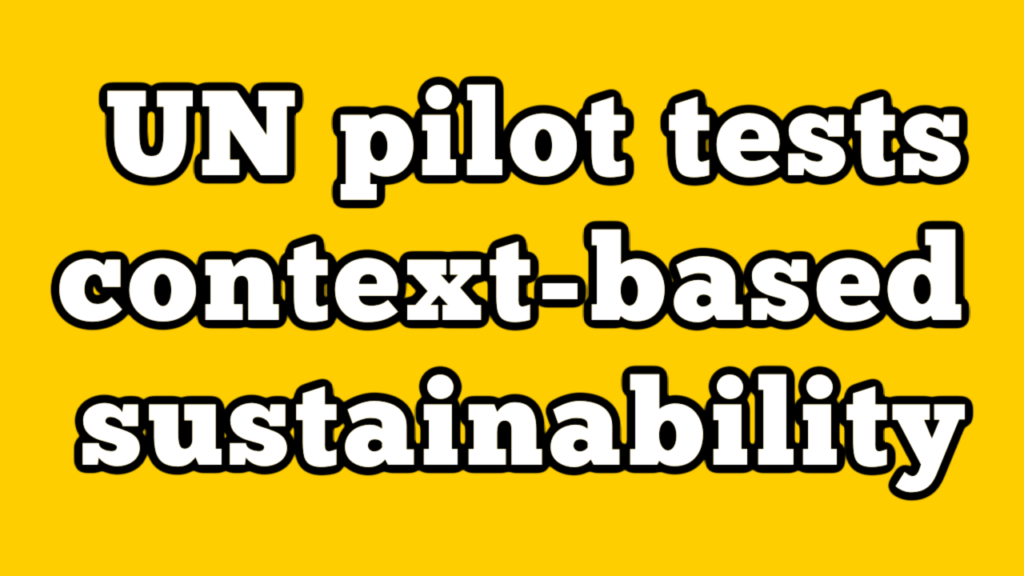UN pilot tests context-based sustainability

Here is the intro of this note from Bill Baue:
Out today: A United Nations report on the pilot testing of a new set of “ground-breaking” indicators that measure organizational performance vis-a-vis sustainability thresholds and transformation, thus ushering in a new era that delivers on the deferred dream of Sustainability Context that has been largely dormant for the past 2 decades.
The Synthesis Report assesses the pilot testing of the UNRISD Sustainable Development Performance Indicators (SDPIs), which set a data foundation with traditional incrementalist / ESG indicators, and build onto that indicators that integrate Context-Based Sustainability, which measure performance against ecological, social, governance, and economic thresholds. As well, the SDPIs include indicators of transformation, in particular filling blind spots.
The Synthesis Report, which I authored with support on data analysis from my r3.0 colleague Ralph Thurm and support on the pilot testing from Mark W. McElroy, PhD, examined Implementability and Transformativity, and found very positive results on both!
For example, GLS Bank integrated the SDPIs in its 2020 sustainability report in a way that “puts sustainability in a global context and proposes indicators for budgets (that is, thresholds or allocations) and for norms,” according to its Sustainability Head Jan Köpper.
Manulife Director of Global Sustainability Kyle Cahill characterized the predominance of peer pressure demand for incrementalist ESG (Environment, Social, Governance) as “the disclosure tail wags the sustainability dog, resulting in effort and strategic decision making focused on ESG data vs. putting resources toward efforts that result in a more beneficial impact – such as what the UNRISD SDPIs address.” He continued: “So we need to elevate Context so that other organizations integrate it into their annual reporting calendar… Where and when do some of these Context-based metrics start to make their way into this cycle?”
The pilot process led to transformation in how companies manage their sustainability. Dr. Stefan Siemer, Head of Corporate Sustainability at Weleda Group, said: “The Weleda Board of Directors and the Weleda Management Board have now decided that, as part of the new corporate strategy, Weleda will develop an inclusive reporting framework by 2025—a framework that is Multi-Capital and Context-Oriented.”
